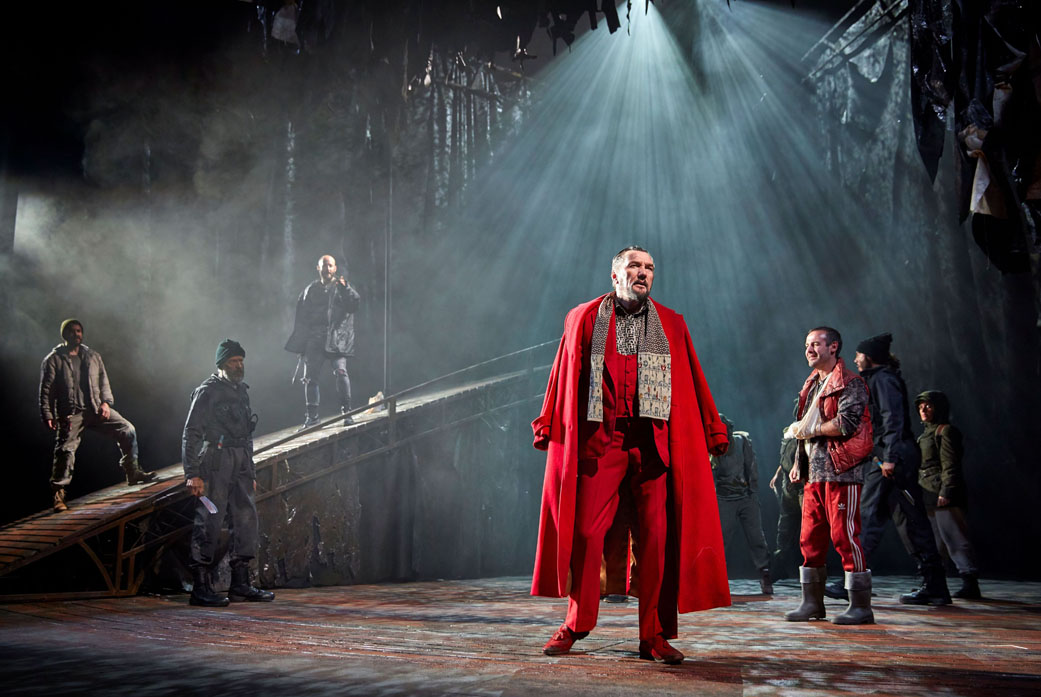
Although the shortest Shakespeare’s tragedies, Macbeth has all the parts necessary for a director to make of it what they will. Painting on their canvas with more of this colour rather than that the clear themes within the play can be given more or less prominence. Director, Rufus Norris, in searching for a setting which imagines the play in something like the modern world, has settled on that ‘go to’ staple; a post-apocalyptic wasteland of ruined civilization where ‘might is right’.
In thus prising the play from a world in which churches were engines of war in the battle against the dark forces that lurked just out of sight, but everywhere and ever present waiting to lure souls to damnation (and pollute society) account must be taken of our less credulous times when giving Macbeth the motivation for his trajectory. Mr Norris gives us a mystery, a psychological mystery: why would a man who has everything going for him risk all for what he knows to be an insecure if absolute power?
Michael Nardone’s Macbeth is not merely conflicted over his ambitious route to the top; he is, having committed the act, positively flaky. His is not a king with a swagger, rather a hands-in-pockets, full of self-doubt leader; a thug in a broken society, who when the chips are down simply does more of what he knows best. Little surprises him, certainly not the weird sisters, who are interrogated as curiosities rather than dangerous entities. His only surprise seems to be at his own capacity to break all conventions of hospitality and loyalty when natural justice and his own better nature seems to militate against such action. Thus it comes as no surprise to anyone that his only respite from the guilt of his first foray into the dark side is to drown it out with even greater enormities.
Kirsty Besterman as Lady Macbeth provides the spine a true tyrant needs. Living out her days in a converted concrete pill box as home you sense she’d rather be out with the boys, machete in hand, cutting a swathe through the king’s enemies. Little surprise then that she is the coiled spring to Macbeth’s guilty aspirations and for whom loyalty is a handicap rather than an obligation.
Rae Smith’s tenebrous setting suggesting survival after destruction underlines the point that these are dark times, which even for us are no more than a nuclear catastrophe away.
★★★☆☆ Graham Wyles 28th November 2018
Production photograph by BrinkhoffMogenburg

